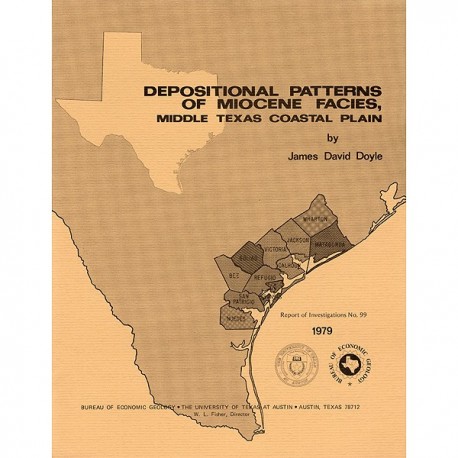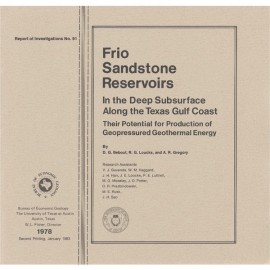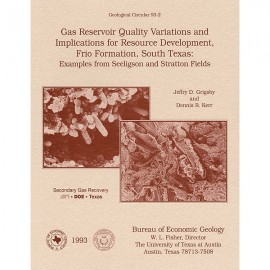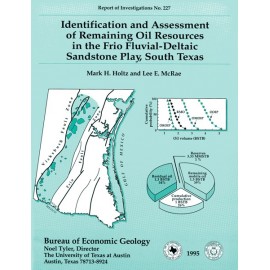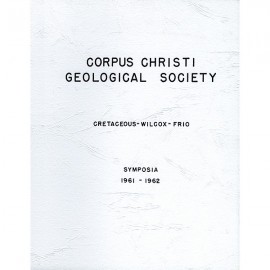Reports of Investigations
-
Books & Reports
- Reports of Investigations
- Guidebooks
- Udden Series
- Geological Circulars
- Down To Earth
- Atlases of Major Oil and Gas Reservoirs
- Texas Memorial Museum Publications
- Environmental Geologic Atlas of the Texas Coastal Zone
- Mineral Resource Circulars
- Other Reports
- Seminars and Workshops
- Handbooks
- Submerged Lands of Texas
- Symposia
- Annual Reports
- Open File Reports
-
Maps & Cross Sections
- Thematic Maps
- Miscellaneous Maps, Charts & Sections
- Geologic Atlas of Texas
- STATEMAP Project Maps
- Geologic Quadrangle Maps
- Cross Sections
- Highway Geology Map
- Energy and Mineral Resource Maps
- Shoreline Change and Other Posters
- Wilcox Group, East Texas, Geological / Hydrological Folios
- Bouguer Gravity Atlas of Texas
- River Basin Regional Studies
- Featured Maps
- Posters
- Teachers & the Public
-
Geological Society Publications
- Gulf Coast Association of Geological Societies
- Alabama Geological Society
- Austin Geological Society
- Corpus Christi Geological Society
- Houston Geological Society
- Lafayette Geological Society
- Mississippi Geological Society
- New Orleans Geological Society
- South Texas Geological Society
- GCS SEPM Publications
- Historic BEG & UT Series
RI0099. Depositional Patterns of Miocene Facies, Middle Texas Coastal Plain, by J. D. Doyle. 28 p., 30 figs., 1 table, 1979. ISSN: 0082335X. Print.
To purchase this publication as a downloadable PDF, please order RI0099D.
ABSTRACT
Miocene strata along the Middle Texas Coast form an offlapping sequence of fluvial and deltaic sandstones and shales overlying shelf shales of the Oligocene(?) Anahuac Formation. Subdivision of Miocene strata into thin time-contemporaneous units reveals that the axis of Miocene sand deposition migrated gulfward with time until it reached a position 2 to 12 miles (7.5 km) seaward of the present coast. There, strike-fed Miocene sands were deposited in a vertical stack gulfward of the axis of maximum Oligocene Frio sand deposition. A minor transgression occurred in late Miocene followed by further gulfward progradation of Miocene depositional systems.
Mapping of Miocene sandstone distribution, along with examination of electrical-log characteristics, reveals the existence of three depositional systems within each time-contemporaneous unit: (1) an updip fluvial system with dip-oriented sands, (2) a high-destructive deltaic-strandplain system with dominantly strike-oriented sands, and (3) a downdip, distal deltaic-shelf system composed of thin sands separating prodelta and shelf muds.
Structural features greatly influenced Miocene deposition. Vertical stacking of fluvial channel-fill facies suggests a deep-seated structural control of channel positions. During much of the Miocene, large growth faults and basinal subsidence stabilized delta locations by accommodating all incoming sediment, thereby preventing progradation.
Keywords: middle Texas Coastal Plain, depositional systems, Miocene, Texas, Frio Formation, Catahoula Formation, geothermal, waste disposal
Citation
Doyle, J. D., 1979, Depositional Patterns of Miocene Facies, Middle Texas Coastal Plain: The University of Texas at Austin, Bureau of Economic Geology, Report of Investigations No. 99, 28 p.
